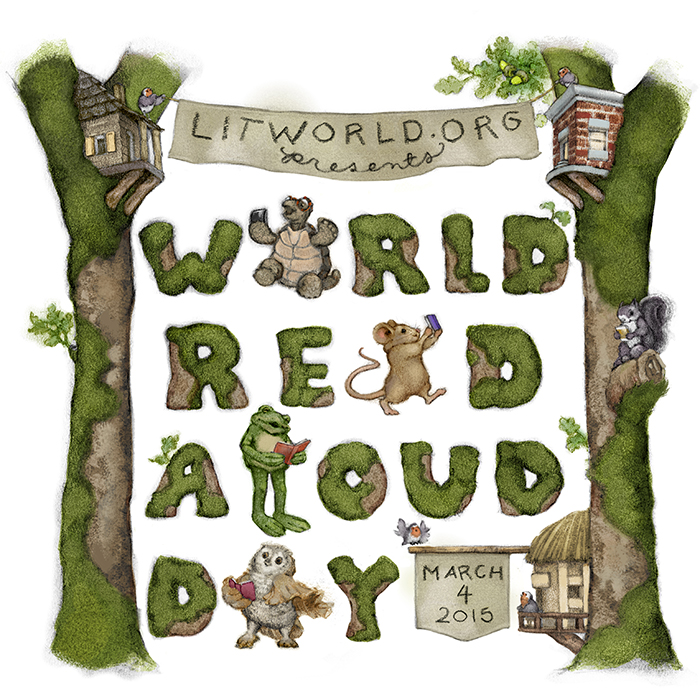"Every year on the first Wednesday of March, World Read Aloud Day calls global attention to the importance of reading aloud and sharing stories."
~LitWorld
This upcoming Wednesday, March 4th is World Read Aloud Day. To celebrate, we've invited a guest reader to visit our classroom and read to us from our read aloud, Fish in a Tree. Our guest reader loves to read, she has read both Fish in a Tree and One for the Murphys, and she was instrumental in getting our class copies of both...we'll reveal who she is on the big day!
To prepare for World Read Aloud Day, we've been looking literacy statistics from around the world.
Global Literacy Statistics
- Reading aloud to children every day puts them almost a year ahead of children who do not receive daily read alouds regardless of parental income, education level or cultural background. (Melbourne Institute of Applied Economic and Social Research)
- According to the latest data (2014), 793 million adults – two thirds of them women – lack basic reading and writing skills. (UNESCO)
- Since 1985, the female adult literacy rate has risen 15%, which is about double the growth of the male literacy rate in the same time period. (UNESCO)
- On tests involving 4,500 to 10,000 students in 43 countries, half of the girls said they read for at least 30 minutes a day, compared with less than one-third of the boys. (UNESCO)
- Even though the size of the global illiterate population is shrinking, the female proportion has remained virtually steady at 63 to 64%. (UNESCO)
- Among the youth population, female literacy rates have been rising quickly. Nonetheless, three out of five youths lacking basic reading and writing skills are young women. (UNESCO)
- If all children in low-income countries left school literate, 171 million people could move out of poverty. (World Literacy Foundation)
- Poorly-literate individuals are less likely to participate in democratic processes and have fewer chances to fully exercise their civil rights (UNESCO)
- A child born to a mother who can read is 50% more likely to survive past the age of five than a child born to an illiterate woman. (UNESCO)
- A literate and educated girl is three times less likely to acquire AIDS, she will earn at least 25% more income, and she will produce a smaller, healthier family. (UNESCO)
- Illiterate people earn 30-42% less than their literate counterparts. (World Literacy Foundation)
UNESCO: United Nations Educational, Scientific and Cultural Organization









